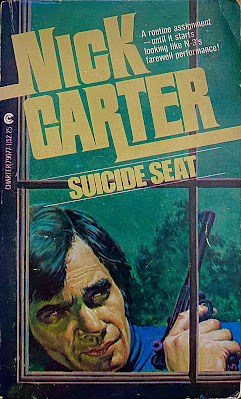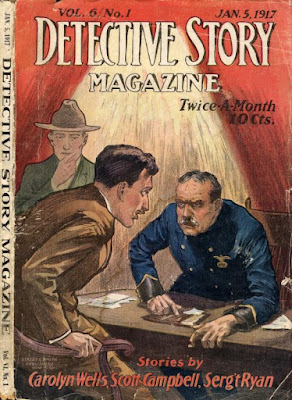Philip Jose Farmer (1918-2009) was a highly respected science-fiction and fantasy author noted for his series Riverworld and World of Tiers. Farmer had a fondness for reworking existing fictional heroes into new novels and stories. From Moby-Dick and Wizard of Oz to Around the World in Eighty Days, Farmer would often fill in missing time periods or create sequels to literary works that were created by other authors. Farmer created two mock biographies of famed literary characters, Tarzan Alive and Doc Savage: His Apocalyptic Life. As a fan of the Doc Savage novels since 1933, Farmer chose to author one original series novel, Escape from Loki, which showcases the character at the age of 16 during WW1. By retconning what original author Lester Dent presented in The Man of Bronze (1933), Farmer is able to present an origin story explaining how Doc Savage originally met his beloved team members.
Escape from Loki races out of the gate as the young Doc Savage pilots one of his first aviation missions. It's explained to readers that Savage was hoping to pilot for the U.S. Air Service, but due to their planes needing machine gun installations, Savage's Colonel assigned him to a French aerial combat unit. Farmer uses this as an exciting sequence of events where Savage is shot down during dogfights over Germany. Making his way through the forest, Savage finds shelter in an abandoned farmhouse with two American soldiers. When the two immediately begin squabbling with one other, it's apparent that these men are Ham and Monk. While Savage's introduction to both of them is brief, it's a rewarding experience for Doc Savage fans to pinpoint where he met two of his most trusted allies.
After he's captured by German soldiers, Savage is subjected to a strange dinner party hosted by Von Hessel and Countess Idivzhopu. After escaping Hessel's fortified home, Savage manages to steal a German aircraft but once again finds himself captured by Germans and placed on a train of POWs. After escaping a third time, Farmer's novel reaches a heightened frenzy as Savage is forced to fight a pack of wild dogs inside a bombed out farmhouse. In what could be considered a series abomination to some fans, this 10-12 page portion of the book was an absolute highlight for me personally. Savage's violent battle with the dogs is a bloody carnage of broken legs, sliced throats and stabbings. Then, the starved, crimson-smeared Savage sits on a rooftop prepared to eat the raw carcass of a dead dog. Thankfully, there's another dog battle that leads him into a secret room where he finds that the prior owners were sacrificing infants on a Satanic altar!
I can't help but think that Farmer was venturing off into a different style of storytelling, one that was wildly obscene yet mesmerizing. I was as equally entertained as horrified by the author's stark contrast to Dent's original work. Savage is caught for the final time and shipped to the notorious and supposedly impenetrable Loki prison camp, thus curbing Farmer's penchant for the peculiar.
The book's second-half explores Savage's life at the prison camp and his strategizing an escape from the facility. It's here that he is reunited with both Ham and Monk and the two continue there hilarious insults and banter. It's only a matter of time before Renny, Johnny and Long Tom make their introductions. Together, Savage and the five men form an escape plan while learning that Von Hessel may be performing terrifying experiments on the prisoners. In the book's finale, readers experience a small amount of pulp-fantasy that is reminiscent of Doc Savage's typical “super-powered” villains.
Escape from Loki receives an equal amount of love and disdain from Doc Savage fans. Some are alienated by Farmer's writing style and his attempts to capture the original style of Doc Savage storytelling. At the same time, fans appreciate this origin story and find that Farmer's characterization is spot-on (although universally everyone seems to agree that Farmer's treatment of both Monk and Ham was exceptional). For me personally, I've always had an average experience with Dent's original Doc Savage stories. The first half of Escape from Loki was remarkable and surpasses the better Savage narratives I've read. The second half wasn't quite as impressive with some sluggish scenes, a rushed (or even botched) ending and a halfhearted attempt at introducing Savage to his future colleagues.
Overall, Escape from Loki should be a mandatory read for Savage fans. It is clear that Farmer adored the series and attempted to treat the characters and fans with care and respect. While not perfect, the book was exhilarating at its best and easily acceptable at its worst. You deserve the opportunity to be your own judge.
Buy a copy of this book HERE
























